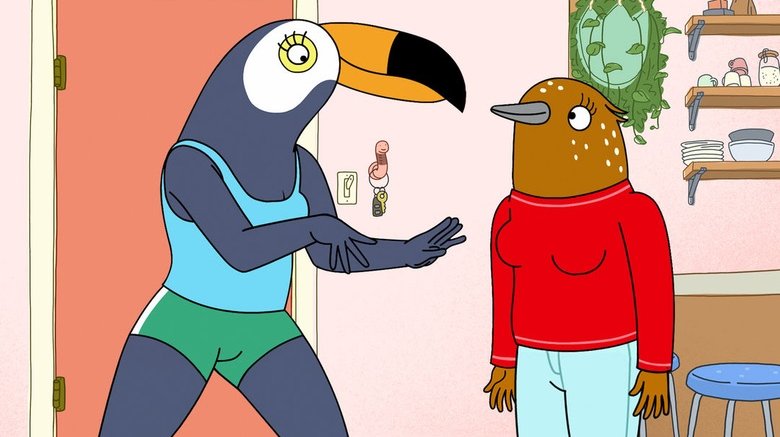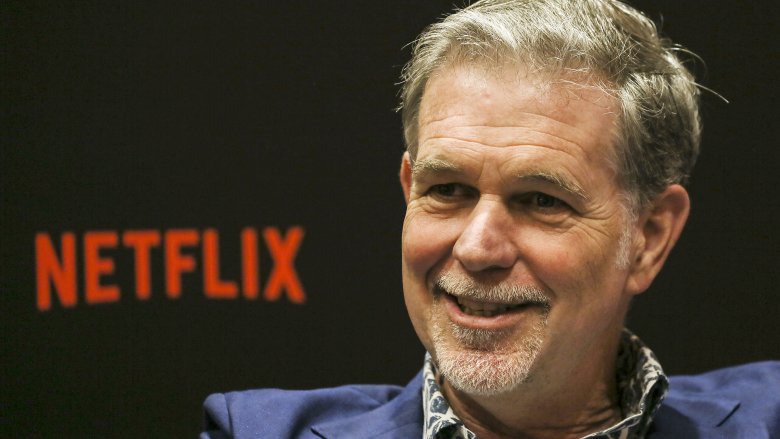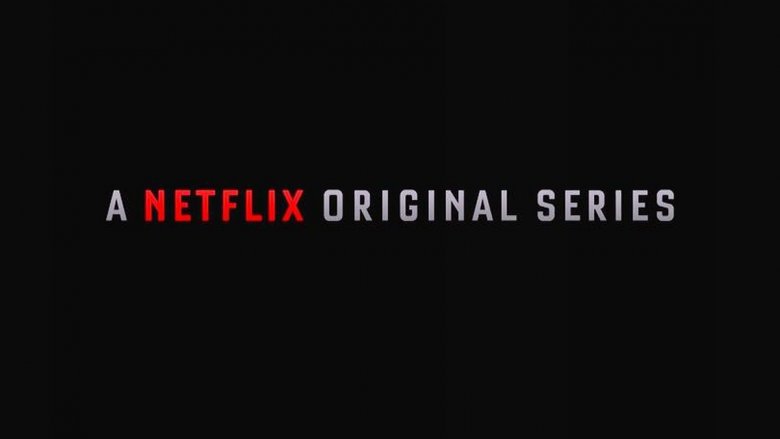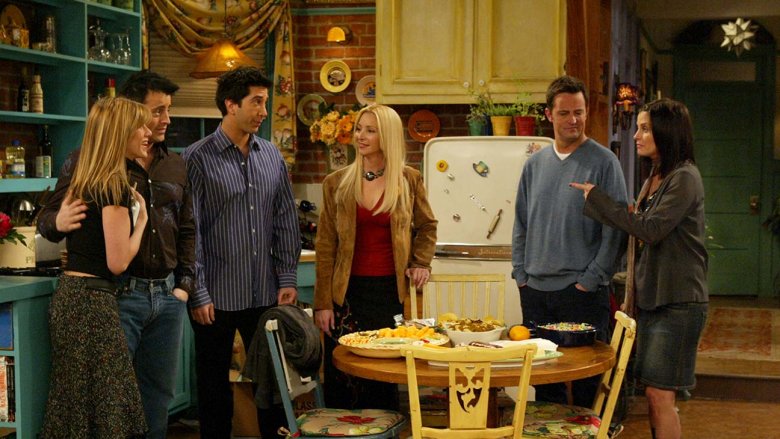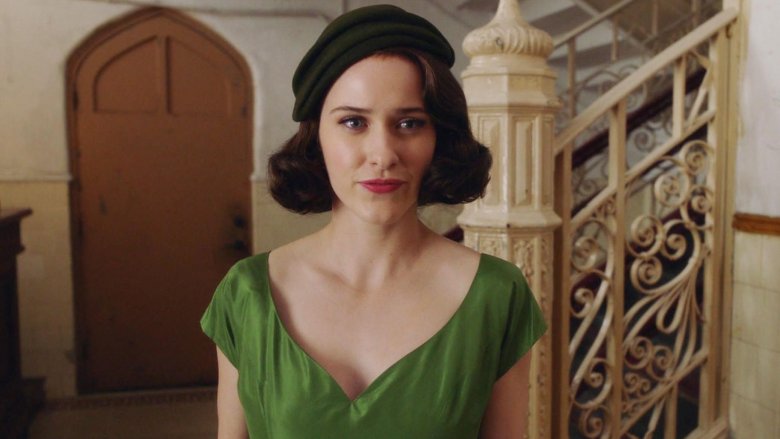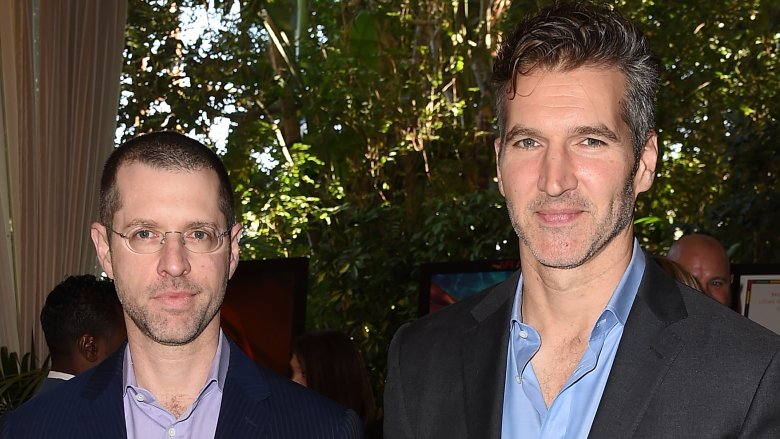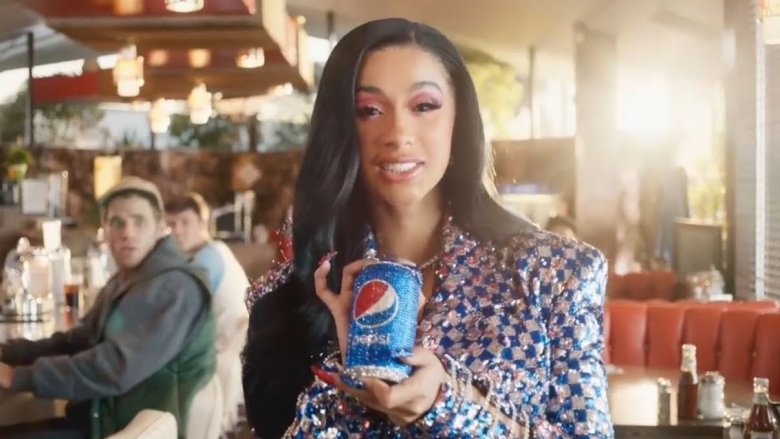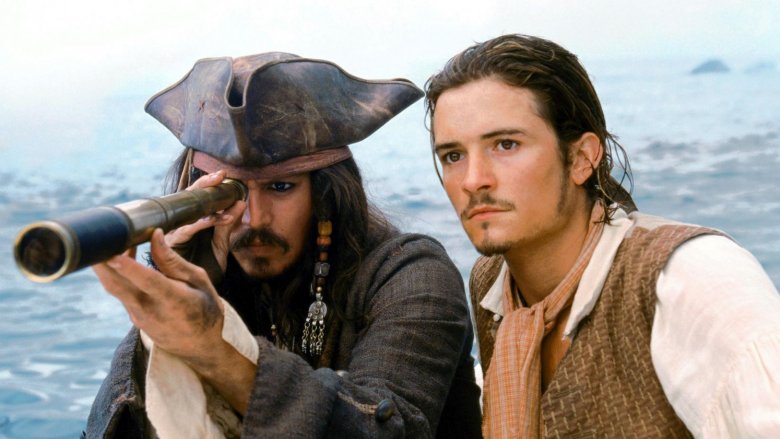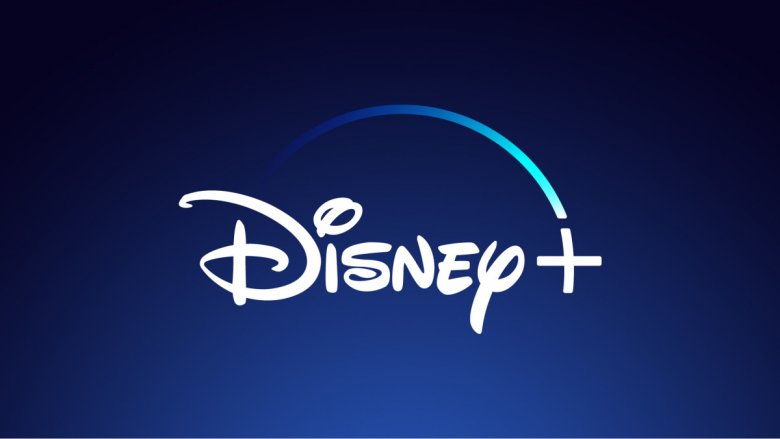Why Netflix May Be In Big Trouble
Over the last decade or so, Netflix has come to dominate our living rooms the way network and cable television did in years past. The onetime DVD delivery service began streaming its library online in 2007, and that year, it notched 7.48 million subscribers. That number steadily climbed every year, and in 2013, the streamer truly started deploying what have become the most potent weapons in its subscriber base-building arsenal: its vaunted originals. House of Cards and Orange Is the New Black both debuted that year, and since then, the number of households with a Netflix account has increased exponentially, reaching 139 million in 2018.
But in 2019, something troubling happened: the service actually lost domestic subscribers for the first time in eight years and missed its global projections by nearly half, causing its stock to tumble and competitors — both existing and on the horizon — to smell blood in the water. While it may seem a little early to ring the streamer's death knell, the stumble can be looked at as part of a trend... one that suggests that in the years to come, Netflix could be facing some seriously rough terrain in its bid to remain the premier streaming service. Signs are pointing to the possibility that Netflix could be in big trouble — and here's why.
Canceled too soon
There hardly seems to be a month that goes by in which some Netflix original movie or series doesn't light a fire under pop culture, but it's becoming apparent that this can be a bit of a double-edged sword. The massive amounts of money that Netflix has sunk into its original offerings has certainly paid off, with series like 13 Reasons Why and Stranger Things and films such as Bird Box becoming the kind of cultural touchstones once thought to be the sole domain of cable networks like HBO. However, a problem with this model, particularly in regard to its original series, has reared its ugly head: Netflix is starting to pick up a reputation for axing shows before they've had time to develop.
Fans were particularly irked by the cancellation of the critically adored One Day at a Time after three seasons, and the unceremonious axing of Tuca & Bertie — which hailed from the creative team behind the popular, long-running Netflix series BoJack Horseman — shortly after its first season debuted. Netflix famously only shares viewership numbers when it feels like it, so fans are unable to even get an idea of just how poorly a series has to perform before the axe falls. The trend of abrupt cancellations is only getting more pronounced as Netflix's library of originals balloons, leaving many fans feeling that when it comes to Netflix's series, it's best not to get too attached.
The inevitability of rate hikes
Netflix's burgeoning slate of selections has come at a cost — literally. The price of a standard subscription has steadily climbed for years, and while the streamer has been able to weather many of these increases without losing subscribers, a survey conducted after a May 2019 hike indicated that this won't be the case forever. The survey revealed that only about two-thirds of consumers were firmly on board with retaining their subscriptions, with over a quarter stating that they "might" or "will definitely" leave the streamer behind.
The words and actions of Netflix CEO Reed Hastings have not been helpful in this regard. In April 2018, amid a surge in Netflix's stock, Hastings stated that there were no plans to drive up rates anytime soon; just over a year later, subscribers in multiple regions were hit with an across-the-board increase. Shortly thereafter, Netflix reported that a whopping 126,000 subscribers had ditched the service — and Hastings himself acknowledged that most of those losses could be attributed to the areas in which rates went up.
Of course, there are myriad factors behind such increases, not the least of which being how expensive it is to produce all those originals. It might help for Netflix to pare down that slate, with a focus on quality over quantity — but that doesn't look like that's happening anytime soon.
Turn down the volume
Netflix will spend $15 billion on original content in 2019, a budget which has steadily increased year after year. But in contrast to years past, the streamer's efforts to field something for everyone is beginning to simply lead to an increasingly crowded and confusing field of originals. This crowding can be a bane to some of Netflix's offerings, as its much-maligned algorithm can often fail to suggest shows that might interest certain viewers, at least partially owing to the glut of material available.
The company has publicly acknowledged that its original offerings aren't driving growth like they used to, despite the ever-increasing spending — and there doesn't seem to be a clear solution to the problem. Of course, the streamer can always fall back on its enormous library of licensed content, which (believe it or not) actually accounts for the vast majority of Netflix's domestic viewing hours. But as more production houses and rival services are entering the streaming fray, even those with which Netflix has enjoyed long, mutually beneficial relationships are beginning to eye the possibility of cutting ties in favor of taking their product directly to the consumer on their own.
License revoked
Unfortunately, Netflix has little choice but to continue relying on its originals to satisfy subscribers, because its catalog of licensed content is shriveling — and it'll continue to do so. Studios once eager to use Netflix as the online home for their brands are now bent on getting their own piece of the streaming pie, a situation which has resulted in some of Netflix's most reliable licensed offerings — notably Friends, which will depart for HBO Max in 2020, and The Office, which will find a permanent home on NBC's upcoming service — finding their days on Netflix numbered.
Obviously, such developments are bound to give serious pause to consumers whose main interest is in the big studio-produced content which has been Netflix's bread and butter over the years. It may seem like we hear of a new streamer getting set to launch every month or so, but many of these could end up catering to niche markets of consumers who are simply exhausted with all of the comings and goings of their favorite shows inherent to Netflix. For that matter, some of Netflix's competition have quietly begun to beat the streamer at its own favorite game: fielding quality, must-see originals.
The competition steps it up
Netflix has done an admirable job of positioning itself as the home of exciting original series unconstrained by the limitations of network or even cable TV, but this is changing rapidly. Chief competitors Amazon and Hulu (which is now controlled by the deep-pocketed Disney) were once considered also-rans, but in recent years, both have stepped up their selection of quality original fare considerably. For examples, look no further than Hulu's award-winning dystopian drama The Handmaid's Tale, or Amazon's hit series The Man in the High Castle and The Marvelous Mrs. Maisel, both of which have won raves from critics and helped to drive subscriber growth.
As this trend continues — and more players enter the game — Netflix will have to keep its finger firmly on the pulse of what viewers want in order to remain relevant, which is difficult to do when its focus is so squarely on the bottom line. In recent years, Netflix has deployed a new strategy to draw in subscribers by promising them exclusive content from established creators — but there's a strong possibility that this approach could backfire.
All or nothing deals
In 2019, Netflix upped the ante on its competitors with two ridiculously high-profile deals. In April, the streamer signed American Horror Story and Glee creator Ryan Murphy to a whopping $300 million deal, which will see the small-screen mastermind developing no fewer than ten projects. In August, it was reported that Game of Thrones showrunners David Benioff and D.B. Weiss had signed a similar deal worth $250 million — and while securing the services of such established names may seem at first glance like a coup for Netflix, the reality is a bit more complicated.
First, there is the possibility that a number of the projects that will come to fruition under these deals simply won't ring consumers' bells. (In regard to Weiss and Benioff, one inside source summed it up succinctly to The Hollywood Reporter: "The bet is that they'll do another Game of Thrones... and that's a big bet.") Second, chasing such big-name signings could have a chilling effect on Netflix's willingness to work with hot, up-and-coming talent, which has served the streamer well in the past (as with House of Cards' Beau Willimon and BoJack Horseman's Raphael Bob-Waksberg). Other streamers will be only too happy to scoop up such talent, which could lead to a situation in which Netflix is increasingly seen as an old dinosaur amid a field of hip, newer competitors.
Foray into theaters
Even if Netflix manages to remain dominant in the wake of the upcoming phalanx of streamers getting set to make their debuts, it'll have another self-inflicted wound to deal with: its puzzling insistence on entering into direct competition with movie theaters for consumers' dollars. In late 2018, Netflix revealed plans to release some original films theatrically before they're made available for streaming (mainly in order to increase their chances for Oscar contention) and has even proposed a plan to buy its own movie theaters to showcase such releases.
This may be a classic case of a monster corporation spreading itself a bit too thin and failing to focus on what propelled it to success, and it could turn out to be an unmitigated disaster. Case in point: the Coen Brothers' The Ballad of Buster Scruggs, a Netflix original which did well on the streamer but frustrated the Coens' fans with a spotty, extremely limited theatrical release. Another case in point: The Irishman, another original, helmed by Martin Scorsese and starring Al Pacino and Robert De Niro. Despite that insane pedigree, it's only receiving a limited run in theaters before moving to Netflix several weeks later. It's safe to say that Netflix isn't setting the world on fire with their foray into the world of theatrical releases, and with a murky long-term strategy, it's not at all clear why the streamer is attempting to make these costly inroads in the first place.
No live TV
Conversely, one area that Netflix could expand to easily without taking the focus off of what it does best is live TV. Netflix execs, though, have stated early and often that they have no plans to enter this arena, meaning that challengers willing to take the plunge — particularly Hulu, with its library of great original content — could increasingly come to be seen as a viable alternative.
As it turns out, the explosion of streaming services has done little to curb the habits of viewers accustomed to watching their favorite shows by appointment, on broadcast or cable television networks. Many services, such as Sling and Playstation Vue, have popped up in recent years to offer cord-cutters all the things they're used to getting from their cable companies: local news, live sports, DVR functionality, and the ability to watch Law and Order: SVU or This Is Us as they're airing.
While Netflix regularly adds recent seasons of popular shows to its library, they can often take a year or longer to pop up, and they don't always stay for very long. Of course, if you're willing to wait that a year or so to binge the latest season of Better Call Saul on Netflix, there will be one bonus: you won't have to sit through any commercials. Unfortunately, this may be about to change as well.
Ads are coming
Although Netflix execs have long insisted that the streamer will never succumb to the lure of paid advertising, industry analysts likewise insist that it'll soon have no choice. Netflix's business model is one that demands constant growth, and with its titanic operating expenditures, those big-money deals for creators, and the mega-bucks being spent on original content, the potential windfall that could come from that particular, as-yet untapped revenue stream will eventually become impossible to resist. One analytical firm ran the numbers, and estimated that adding a plan with advertising could generate as much as $1 billion per year in revenue for Netflix — with nearly three-quarters of that amount landing directly on the bottom line.
However, this is also a double-edged sword. Being confronted with ads after over a decade of commercial-free streaming will turn off millions of subscribers, with one recent study suggesting that up to a quarter of Netflix's entire base could be lost in the event that the service were to force ads upon them. But without those ad dollars coming in as the streaming wars heat up, Netflix's revenue could begin a swift decline in the years to come, creating a lose-lose situation for the company.
Subscription fatigue
The increased competition from the forthcoming bonanza of streamers could hurt Netflix in more ways than one. The plethora of new services will create an insane glut of choices for streaming consumers, many of whom won't be keen to pony up for five or six different subscriptions every month just to keep tabs on their favorite shows. Many of these services, however, will be siphoning off that all-important licensed content from Netflix — and subscribers whose primary interest is in such content will be more and more likely to drop Netflix, and its ever-increasing subscription prices, in favor of one or two less expensive services housing the content they want.
The threat to Netflix would be significant enough even without a third option, one which has largely been forgotten in all the years that virtually everything worth watching could be streamed from one or two different services. Heavy media consumers may head down this route when the reality of subscription fatigue sets in, trained as they now are to expect ease of access to any show or movie which might tickle their fancy — and if they do, the result could be catastrophic for the streaming industry as a whole.
Plundered by pirates
In late 2018, a study determined that online piracy of media through clients such as Bittorrent is making a serious comeback. Just as overpriced cable bundles drove the piracy boom in the '00s, the current multitude of streamers — with the vast majority of them housing original content — is driving some consumers back in that direction, and this is happening despite the fact that the so-called "streaming wars" haven't even heated up in earnest yet.
The bump in filesharing activity comes after years of decline which came about specifically because of the rise of streaming in general and Netflix in particular, and as more and more streamers enter the market, the trend seems likely not only to continue, but to accelerate. This could force smaller upstart streamers into early graves, and larger ones such as Netflix to adapt in ways that could potentially hurt that all-important bottom line, such as offering reduced-price subscriptions for single screens or low introductory rates for new subscribers.
Consumers who turn to piracy to bypass the streamers will only do so out of perceived necessity, though, and those unwilling to go the illegal route will probably long for the good old days when one dominant service met the bulk of their viewing needs. Those days may yet come again, not so far down the road — but if so, it'll probably be a service other than Netflix that stands the best chance of fitting that bill.
The Netflix killer
The stars certainly seem to be aligning to take Netflix down several pegs, but the single biggest threat to its dominance is easy to pinpoint: Disney+. The upcoming streamer has positioned itself as a "Netflix killer," and will feature exclusive access to a ridiculous wealth of content, including the Fox television library, all of the Pixar, Star Wars, and Marvel film offerings, and original series produced by Lucasfilm and Marvel Studios. As a standalone service, it'll be substantially cheaper than Netflix to boot — and to add insult to injury, Disney's ownership of Hulu and ESPN+ means that the House of Mouse will be able to offer a bundle of all three services for one monthly rate... one which is right in line with the cost of a standard Netflix subscription.
Disney has come to utterly dominate the traditional entertainment industry, and now that it's set its sights on conquering the streaming world, there's no reason to believe it won't do whatever it takes to accomplish that goal. With the endless resources of its parent company, exclusive access to the most popular film and television properties in the world, and an incredibly deep well of content, Disney+ actually has the potential to live up to its menacing nickname. Hastings has said publicly that he welcomes the challenge posed by Disney+ — but he of all people must know that this challenge could spell big trouble for Netflix, and could even mean the end of the streamer as we know it.

